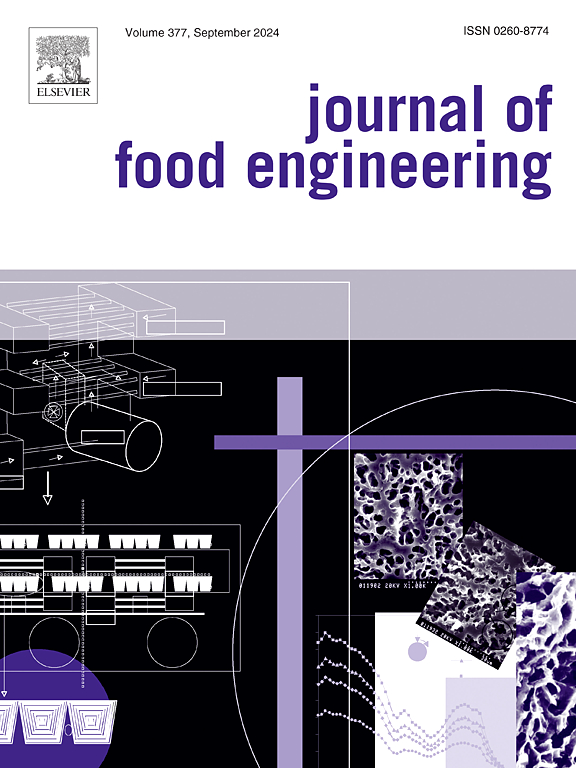Real-time screening of melamine in coffee capsules using infrared thermography and deep learning
IF 5.3
2区 农林科学
Q1 ENGINEERING, CHEMICAL
引用次数: 0
Abstract
Food adulteration is a major concern in the food industry, particularly in widely consumed products such as coffee. This study presents a novel non-destructive approach for detecting melamine contamination in coffee capsules using infrared thermography (IRT) and convolutional neural networks (CNNs). Coffee samples (natural, blended, and decaffeinated) with different coffee-to-milk ratios (1:3, 1:1, and 3:1) were adulterated with melamine at 2.5, 5, and 7.5 ppm. A dataset of 24,296 thermographic images was analyzed using ResNet34, achieving a classification accuracy of 95.71 % in blind validation. Compared to conventional chemical methods, this approach is faster, cost-effective, and scalable, making it a valuable tool for real-time food safety screening. The proposed method offers a non-invasive and rapid alternative to conventional analytical techniques such as High-Performance Liquid Chromatography (HPLC) and Mass Spectrometry (MS), making it highly suitable for real-time quality control in the food industry.
利用红外热成像和深度学习技术实时筛选咖啡胶囊中的三聚氰胺
食品掺假是食品工业的一个主要问题,特别是在咖啡等广泛消费的产品中。本研究提出了一种利用红外热成像(IRT)和卷积神经网络(cnn)检测咖啡胶囊中三聚氰胺污染的新型非破坏性方法。不同咖啡与牛奶比例(1:3、1:1和3:1)的咖啡样品(天然、混合和不含咖啡因的)被掺入了2.5、5和7.5 ppm的三聚氰胺。使用ResNet34对24296张热像图数据集进行分析,盲验证的分类准确率达到95.71%。与传统的化学方法相比,这种方法更快,成本效益高,可扩展,使其成为实时食品安全筛查的宝贵工具。该方法提供了一种非侵入性和快速替代传统分析技术,如高效液相色谱(HPLC)和质谱(MS),使其非常适合于食品行业的实时质量控制。
本文章由计算机程序翻译,如有差异,请以英文原文为准。
求助全文
约1分钟内获得全文
求助全文
来源期刊

Journal of Food Engineering
工程技术-工程:化工
CiteScore
11.80
自引率
5.50%
发文量
275
审稿时长
24 days
期刊介绍:
The journal publishes original research and review papers on any subject at the interface between food and engineering, particularly those of relevance to industry, including:
Engineering properties of foods, food physics and physical chemistry; processing, measurement, control, packaging, storage and distribution; engineering aspects of the design and production of novel foods and of food service and catering; design and operation of food processes, plant and equipment; economics of food engineering, including the economics of alternative processes.
Accounts of food engineering achievements are of particular value.
 求助内容:
求助内容: 应助结果提醒方式:
应助结果提醒方式:


